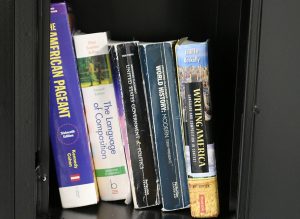Students give APs too much attention
January 24, 2020
As a student attending Starr’s Mill High School, it is downright impossible to not know what AP classes are. They are the topic of many daily conversations in the classrooms, and the students who take them either brag about how many APs they pile onto themselves or complaining about how they are barely getting sleep because of them.
These glorified classes are seen as absolute necessities — if you don’t take at least four or more AP classes in your high school career, absolutely no college will want you, ruining your chances of a future career.
I want more students to realize just how untrue this is. Yes, AP classes can be recommended by some colleges such as UGA or Tech, but choosing to do Dual Enrollment can get you admitted in schools as prestigious and rigorous as those as well.
Dual Enrollment allows students to actually experience what college classes will be like. AP classes, even though they like to say that they give students a look at what college classes will be like, do not really do that at all.
APs just suffocate students with loads of busywork and push them to memorize as many words that their brain can retain. In addition, most of what they teach is based on preparing them for the final exam, not on showing them what actual college classes will be like.
Medea Walker, a writer for education.com, former AP taker, and current college student, says that the two are completely different settings. AP classes put an immense amount of pressure on things such as note taking, filling out huge packets and reading through large chapters in an incredibly short amount of time.
College classes, Walker reports, are much more lenient learning environments. Yes, there is a much greater workload than that in high school, but it is spaced out and given a reasonable time frame.
There is not multiple pages of homework due nearly every single day, many classes offer more open-ended assignments, and professors certainly do not walk around and dictate exactly how or if the student is taking notes a certain way.
Many schools throughout the nation have already come to the realization that AP classes, as the eight heads of Washington-area Private Schools put it, are “where intellectual curiosity goes to die.” They have decided to completely drop the program in an effort to better their students’ way of learning.
These heads claim that having AP classes only drains students of their passion or interest in subjects due to its superficial manner of teaching and its ridiculous way of covering so many materials in such a short time span, banishing the ability for teachers to actually teach the students in a healthy way.
Scarsdale High School in New York has gotten rid of the AP program and instead introduced Advanced Topics, classes that cover subjects discussed in AP classes, but dig deeper and spend more time covering them. These classes also give students the option of taking the final exam.
Schools would not be getting rid of programs if it meant their students would not get accepted into colleges. This proves that AP classes are not essential to get admitted into universities and that they do not truly prepare students for college work ahead.
Another problem with AP classes is that in order to take one, nearly $100 have to be paid if the student wants a chance at receiving any credit for their full year’s work in that class.
Americans for Educational Testing Reform have not only given College Board, the company that created APs, a “D” rating for “numerous areas of misconduct,” but have also spoken out against the large amount of profit that the Board was gaining from these AP classes. “When a non-profit company is earning those profits, something is wrong,” AETR says.
I want more students to realize that AP classes are not the only way to be a successful student with college class experience in high school. While these classes may be interesting to some students, it may not be the best choice for others, and that needs to be more accepted.





